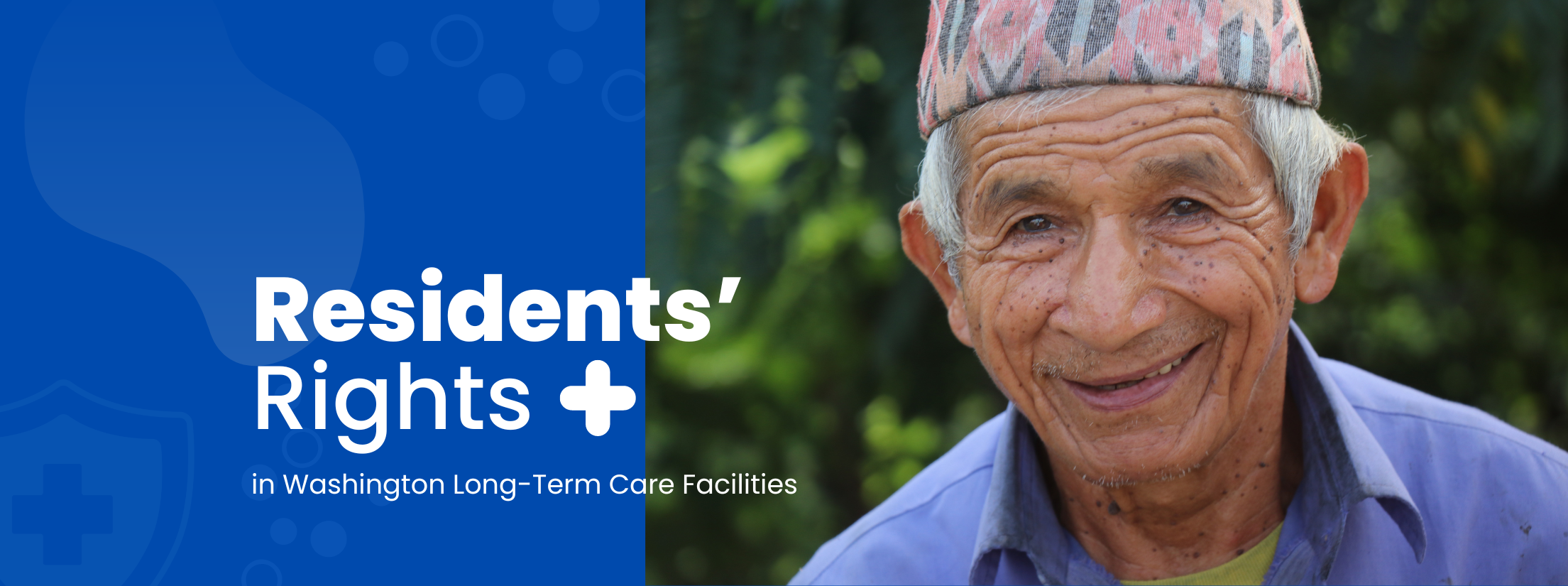Long-term care facilities, including skilled nursing facilities and assisted living communities, are a critical part of Washington’s long-term care services system. It is a long-held standard that individuals who reside in long-term care facilities receive appropriate services, be treated with courtesy, and continue to enjoy their basic civil and legal rights.
Residents have the right to:
-
A dignified and comfortable living environment
-
Access to information about the facility, the services available, and any associated costs
-
Freedom to make their own decisions
-
Access to (and the safeguarding of) their own money if the facility holds their funds or provides a trust account
-
Privacy and confidentiality in personal, financial, and health-related matters
-
A grievance procedure that is responsive and easy to use
-
Participation in groups and activities of their choice
-
Visitors of their choosing
-
Legal protections regarding admission, transfer and discharge
-
Freedom from chemical or physical restraints
-
Freedom from abuse, neglect, or exploitation
Contact the Education & Regulatory team with questions regarding residents’ rights in your facility.
Skilled Nursing Facilities
Elena Madrid
Executive Vice President for Education & Regulatory Affairs
(360) 352-3304 x 105
Assisted Living Communities
Vicki McNealley
Director of Assisted Living
(360) 352-3304 x 107

